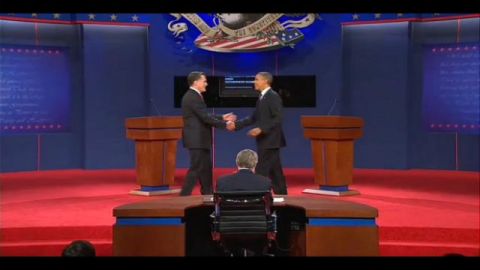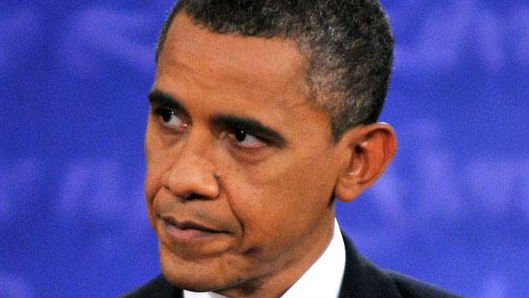The Debate. Yes, there was a Loser. US.

John Silber just passed away. He accomplished many things…made Boston University into an internationally recognized academic institution, served as Chairman of the Massachusetts Board of Education…but he also taught an important lesson about the real importance of televised political debates. Debates matter not for what the candidate says, nor even for the carefully rehearsed hand gestures and facial expressions and body language of how they perform. Like nothing else in a campaign, extensive unscripted live TV appearances can give the electorate a glimpse of who the person is that we are considering to be our leader.
Silber was brilliant, wise, funny, and caring to those close to him. He was also feisty. No…that’s too gentle. He was often brusque. Rude. Harsh. Impatient. Dismissive and arrogant and mean. He treated many people very badly. Even his friends said so. All of this came screaming through during the televised debates as he ran for Governor of Massachusetts in 1990. In the debates he occasionally snapped at the questioner, or his opponent, and sounded imperious and arrogant. Then came the unscripted (videotaped) interview with a beloved Boston TV anchor Natalie Jacobson (I was a reporter and colleague of hers at the time) who asked a softball question “What are your strengths, and forgive me, but if you think you have any, what are your weaknesses” (she even asked it politely, and tentatively, as Silber’s sulfurous temper was widely known), to which Silber angrily snapped “YOU find a weakness. I don’t have to go around telling you what’s wrong with me. The media have manufactured about 16,000 non-existing qualities that are offensive and attributed them all to me. Let them have their field day. You can pick any one of them.”
This was one week before the election. Silber was leading by 9 points. He lost by 4, a 13 point swing in a week. And he lost on the merits, not of his policies, or his intellectual ability, but because the public got a glimpse of the person who was asking for their support as their leader; Not just a thinker…a leader, someone people could like and respect and trust and be inspired by. Silber revealed a side of himself that to the electorate was none of those things.
In a 1984 televised debate between President Ronald Reagan and Walter Mondale, Mondale derided Reagan’s leadership, which had been widely criticized as more movie star style than policy making substance, saying “there’s a difference between a quarterback and a cheerleader…” Mondale’s suggestion that Reagan should be rejected because he was more the latter than the former was precisely wrong. We want our leaders to be both; smart able decision-making quarterbacks AND trustworthy, honest, on-our-side inspirational cheerleaders. In fact, Reagan’s re-election proved that the cheerleader part…the ‘who they are as a person’ part, the ‘who would you want to have a beer with’ part, probably matters more.
All the debates that have played a meaningful role in the final vote have revealed those aspects of the candidates. Remember Michael Dukakis’ emotionless reply in the 1988 debate to a question about how he’d feel about the death penalty if his wife was raped and murdered? Remember Dan Quayle’s deer-in-the-headlights response to Vice Presidential Candidate Lloyd Bentsen’s line “Senator, you’re no Jack Kennedy.”? The line got lots of play, but Quayle’s stunned reaction didn’t inspire confidence that he could be a leader.
We never really know who these people/candidates are. The controls slapped on them by the handlers throughout the campaign deny us an honest look at this most important aspect of what need to know as we choose who to lead us. In fact, those controls make the candidates stiff, and awkward, and that turns out to hurt them more than help. They say Mitt Romney, criticized for being stiff and awkward, is a really nice regular guy, off-camera. Al Gore, famous for being wooden as a candidate, is funny, self-effacing, relaxed, off-camera. John Silber was witty and wise and even warm, off-camera. In front of the cameras, the risk of making the slightest mistake the opposition can jump on has now made everything so managed that it’s really hard for us to get an honest read on these people, as people…which matters a lot to who we want to lead us.
That’s why these debates really matter. That’s the role they can play. And that’s how to score who won and lost. If we’re lucky, and can stay awake through the policy talk and rehearsed lines and twisted half-truths they sling at each other, the veil might lift in some unscripted moment and reveal something we really want to know…need to know…about the human being behind the candidate. That’s what the moderator and questioners are really supposed to evoke, which Bernard Shaw did with his question to Michael Dukakis, and Jim Lehrer certainly did not with his wonky policy-heavy NewsHour questions of Obama and Romney.
Reviewers seem to think that Romney performed better than Obama, that he was more assertive and sharp, that the President seemed flat, tired. (Gore even suggested the thin air of the Mile High City setting of Denver might have contributed, noting that Romney prepped there and Obama arrived only late that afternoon!) But did the viewing voting public win or lose? Did anyone still trying to decide who to vote for gain any additional sense of the human beings behind the candidate masks? Maybe, but not much, I would say. In that sense, there was at least one clear loser last night. Us.




